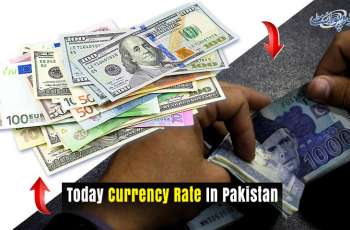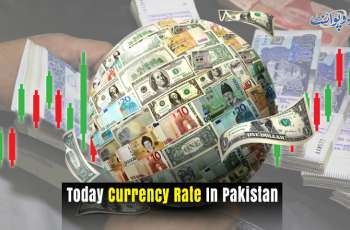The renewable energy market has been mainly untouched by the economic meltdown and decreasing oil prices, which may bring about misconceptions that there is no need for a transition to alternative energy sources with low fossil fuel prices, but such misjudgment is nonetheless short-term, experts told Sputnik
MOSCOW (Pakistan Point News / Sputnik - 18th April, 2020) The renewable energy market has been mainly untouched by the economic meltdown and decreasing oil prices, which may bring about misconceptions that there is no need for a transition to alternative energy sources with low fossil fuel prices, but such misjudgment is nonetheless short-term, experts told Sputnik.
Oil prices reached historically low levels this year as a result of a falling demand due to the COVID-19 outbreak and the April fallout between the OPEC+ producers.
While the cartel and the oil producers from a wider G20 group of nations including the US, Brazil and Canada reached last week what many have called a historic agreement on oil production cuts to stabilize the market, the market reaction has not proved positive. The oil prices have been falling since Tuesday, with WTI selling for $19 per barrel as of Friday, the lowest price since January 31, 2002. Throughout 2020, the oil prices are expected to remain relatively low and a rise to some $40-45 per barrel may only be expected by the end of the year.
RENEWABLES CHEAPER EVEN WHEN FOSSIL FUEL PRICES ARE LOW
The renewable sources of energy such as solar, wind, biofuel and others, prevailed among new additions to the global power generation mix in 2019. The renewables' capacity increased by 176 gigawatts (GW) in 2019, reaching a total of 2,537 GW, according to the International Renewable Energy Agency.
Despite the growth the renewable energy showcased last year, there are fears that the COVID-19 pandemic can slow down the transition to the alternative sources of energy. Many supply chains have been disrupted and part of the renewable energy facilities and factories have been shut down to contain the spread of the pandemic.
"Low oil, and energy prices generally, are not bad for renewables at all.Solar and wind (even when storage is included) are lower than fossil fuel prices in much of the world.The least cost new large-scale projects anywhere in 2018 and 2019 were for solar and wind. Renewable energy costs are falling everywhere, and so decisions to invest in fossil fuels today are a poor choice.Low fossil fuel prices, notably for natural gas, just make renewable energy projects easier because they can be backstopped with gas, if that is even needed," Daniel M. Kammen, the professor of energy at the University of California, Berkeley, told Sputnik.
Kammen, a former World Bank Group's chief technical specialist for renewable energy noted that he had recently called on the US Congress to refrain from bailing out the country's fossil fuel sector, which was hit hard by the energy market crisis. In an open letter called A Green Stimulus to Rebuild Our Economy, Kammen, alongside a group of academics and civil society, have urged the lawmakers to accelerate the US transition to the renewables.
Benjamin K. Sovacool, the professor of Energy Policy with the University of Sussex, in his comments to Sputnik agrees with Kammen that the low oil prices do not necessarily have a negative impact on the renewables.
"Low energy prices also mean energy transitions have a less negative effect on the poor, so it makes renewables more equitable, and it expands the affordability of access to them. So low prices are not necessarily bad," Sovacool, a co-author of a book called Global Energy Politics, released this April, said.
Fossil fuels have many so-called hidden costs, such as coal mining deaths, air pollution, and contributions to climate change, which make them even less profitable nowadays when the low prices are taken into account, the professor noted.
"These are not factored into energy prices, however, so it creates a situation known as 'market failure' where the true costs of energy do not match its price. This makes it very hard to allocate or plan energy resources optimally. If you were to start to include these costs, though, renewable energy would already be far, far cheaper," Sovacool added.
The low oil prices have weakened the viability of oil and gas resources, making the business case for renewables even stronger, Francesco La Camera, the IRENA Director-General, said earlier in the month. However, the experts warn that the economic slowdown, caused by the COVID-19 outbreak, may reduce the flow of investment into renewables in the short-term perspective.
"All companies renewable and fossil that need to make new investments (primarily renewables these days, as they are growing) are hurting during the downturn, but the long-term prospects for renewables are strong," Kammen said.
Energy sector as a whole might be perceived as an unstable investment and that can impact the renewables as well, according to Sovacool.
"[The economic slowdown] may stigmatize energy as a whole from the energy and finance community.They may think that energy is bad for investment, period, whether it's from renewable or fossil fuel sources," the professor with the University of Sussex noted.
But as the falling prices of the fossil fuels are driving out some companies out of business, it opens an opportunity for the alternative energy companies to fill the gap, the expert concluded.




